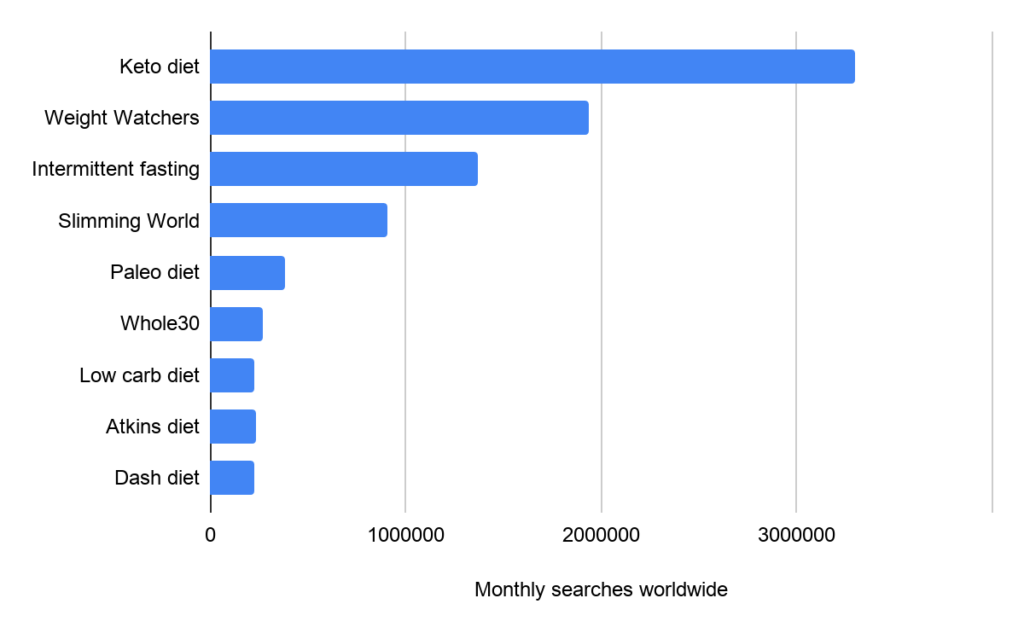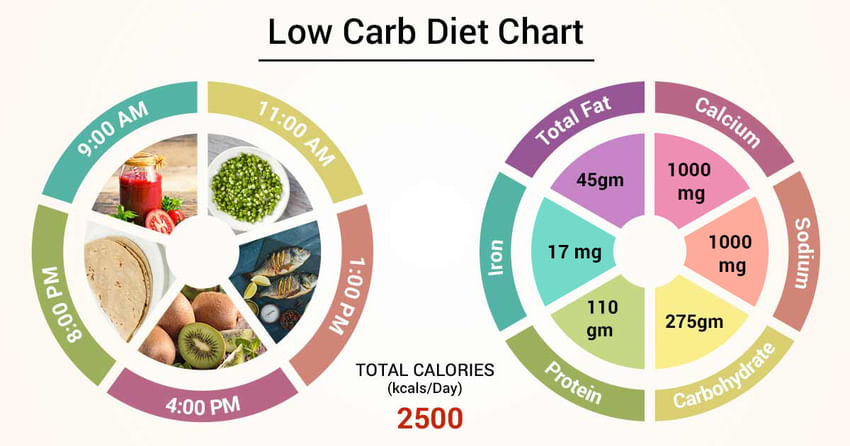Are you a bodybuilder, constantly worried about consuming carbs in your diet? If yes, then this post is for you. Frequently demonized by the weight loss industry, carbs are feared by many people. But in reality, carbs are one of the most essential nutrients that our body needs. They perform a wide range of functions from fueling workouts to providing energy for the brain. And contrary to popular belief, a low-carb diet is not the only way to achieve a ripped physique.
This post covers everything you need to know about carbs, from the benefits of including them in your diet to the recommended daily intake for bodybuilders, and the best sources of healthy carbs that you can include in your diet. So ditch the myths and start enjoying the goodness of carbs.
#Carbs can support heart health
Carbohydrates have been a topic of debate among bodybuilding enthusiasts. Many believe that carbs are evil and may cause harm to the body. However, the truth is far from that. In fact, sources of whole grain carbs have been linked to a slower age-related mental decline and a lower risk of developing Alzheimer’s disease. There is no evidence that whole carb sources lead to any kind of brain damage or cognitive diseases such as Alzheimer’s.
Carbohydrates are not associated with obesity. High carb intake does not lead to weight gain or obesity. Further, saturated fat consumption is not linked to an increased risk of cardiovascular disease. The right kind of carbs can support heart health, reduce cortisol levels, and manage stress.
#Carbs Are Not Uniquely Fattening
The notion that carbs are inherently fattening is nothing but a myth. In fact, scientific evidence overwhelmingly supports the safety and health benefits of consuming carb-rich foods. Several populations that have maintained high-carb diets over centuries have been in excellent health.
Limiting carbs can be detrimental to your overall health in the long run. Studies suggest that there is no significant association between high carb intake and obesity. Whole grain carbs, which are highly nutritious, have been linked to less inflammation and are associated with slower age-related mental decline.
#Carbs improve athletic performance
Low-carb diets have been popularized by bodybuilders and people who want to lose weight. However, contrary to popular belief, carbs are essential for athletic performance.
- Low-carb diets risk depleting glycogen stores in muscles, which is the primary fuel source for high-intensity workouts.
- Whole grain carbs, such as oatmeal and brown rice, can improve performance and reduce the risk of age-related mental decline and Alzheimer’s disease.
- Additionally, such carbs are rich in magnesium and fiber, which reduces inflammation in the body.
- The Mediterranean diet, which is typically rich in whole grains, has been linked with improved brain health.
However, refined carbs and foods high in added sugars should be avoided as they contribute to an unhealthy lifestyle.
#Carbs help regulate blood sugar levels:
Contrary to popular belief, carbs play an essential role in bodybuilding and maintaining a healthy weight.
- They help regulate blood sugar levels and provide the body with an essential source of energy.
- Eating a high-carb diet is not necessarily more fattening than other types of diets. In fact, caloric restriction is not necessarily healthier than a ketogenic diet.
- Low-carb diets do not necessarily cause hypoglycemia, and studies have shown that eating the majority of carbs at night leads to lower levels of LDL (bad) cholesterol and higher levels of HDL (good) cholesterol.
- Additionally, it can lead to lower insulin levels and higher levels of adiponectin, a hormone associated with increased insulin sensitivity and fat burning.
It’s important to have a balanced diet that meets your body’s needs – this includes consuming the right amount of carbs to keep you energized and focused throughout the day.
#Carbs improve gut health
Carbohydrates serve as an excellent energy source for beneficial gut bacteria, which in turn help boost our immune system. Whole grain carbs are particularly beneficial and high in magnesium and fiber that help reduce inflammation.
In their natural state, carbs are neither good nor bad for us; it’s the type and amount that matter. Even on a low-carb ketogenic diet, it is possible to consume sufficient fiber from legumes and oats to maintain a healthy balance of gut bacteria. Therefore, we should not fear carbs as they are vital for gut health and should play an important role in our diet.
#Carbs help with weight management
Eating carbs at night can reduce stress and help build muscle, burn fat, and manage weight. Low Carb High Fat (LCHF) diets can actually de-train the gut, making it harder for athletes to handle carbs, fluid, or sodium, which can affect their performance.
CLA (Conjugated Linoleic Acid) is commonly thought to help with fat burning, but evidence shows that it is not effective for weight management.
Creatine, on the other hand, is a supplement that can help athletes leverage their lifting capacity and achieve a fuller muscle look.
Ultimately, carbs are an important macronutrient and are required for the body to perform at its best and manage weight effectively.
#Healthy carbs reduce the risk of chronic diseases
Carbohydrates have often been associated with weight gain and avoidance of carbohydrates is a common idea. However, it is necessary to include healthy carbs in a balanced diet because they are essential for maintaining overall health.
Whole grains are an excellent source of healthy carbs as they are packed with fiber, magnesium, and other essential nutrients. Studies show that eating healthy carbs like whole grains can reduce the risk of age-related mental decline and lower the risk of developing Alzheimer’s disease.
These grains can also help reduce inflammation and reduce stress levels. Bodybuilders should remember that it is not necessary to avoid carbs altogether. Evidence does not support the notion that high-carb diets are uniquely fattening.
What is the recommended daily carbohydrate intake for bodybuilders?
Carbohydrates play an essential role in energy metabolism in our body. Bodybuilders need to consume an adequate amount of them for proper muscle growth, recovery, and overall performance. The recommended carbohydrate intake for bodybuilders is between 2.3-3.3 grams per kilogram of body weight per day, depending on activity level. It is generally suggested that around 45-65% of total calorie intake should come from carbohydrates.
What include in healthy carbs?
Contrary to popular belief, carbs are not the enemy. Complex carbohydrates like:
- Starchy vegetables
- Legumes
- Whole grains can provide the body with the energy and fuel it needs.
Healthy carbs can also help reduce the risk of obesity and a variety of health problems when consumed in moderation. Whole grains are an excellent source of fiber and magnesium, both of which are linked with less inflammation and mental decline as we age. It is important to note, however, that it is essential to limit the intake of refined carbs and added sugar to maintain overall health.
Let’s Sum Up
Carbohydrates should not be feared, and they are not the enemy. Avoiding carbs can do more harm than good while bodybuilding. Consuming healthy carbs can provide a range of benefits, from supporting heart and gut health to regulating blood sugar and weight management. Bodybuilders should aim to consume the recommended daily carbohydrate intake through healthy sources such as whole grains, fruits, and vegetables. Include nutrient-dense carbohydrates in your diet as part of a balanced and healthy diet.
Don’t restrict yourself from consuming them. Instead, use our guide on how to choose healthy carbs while bodybuilding for added support.





